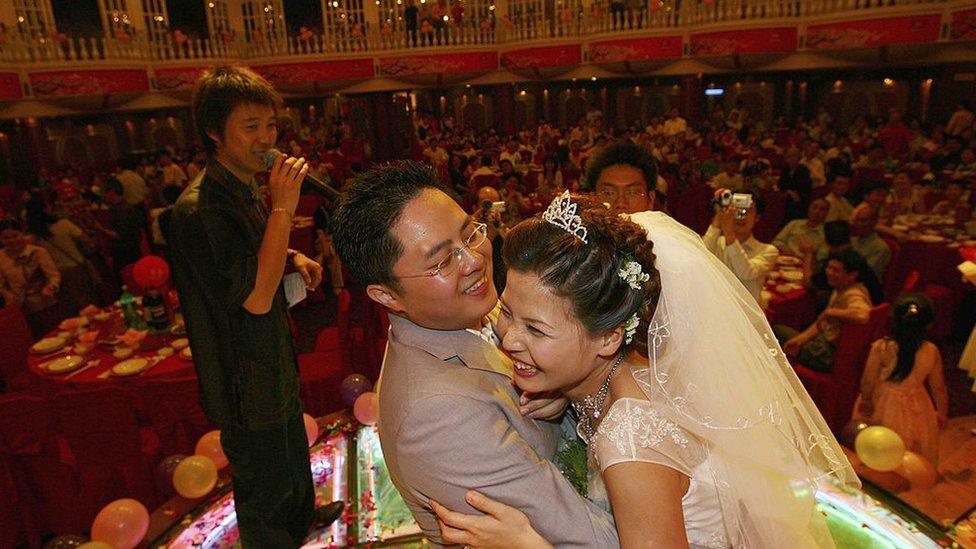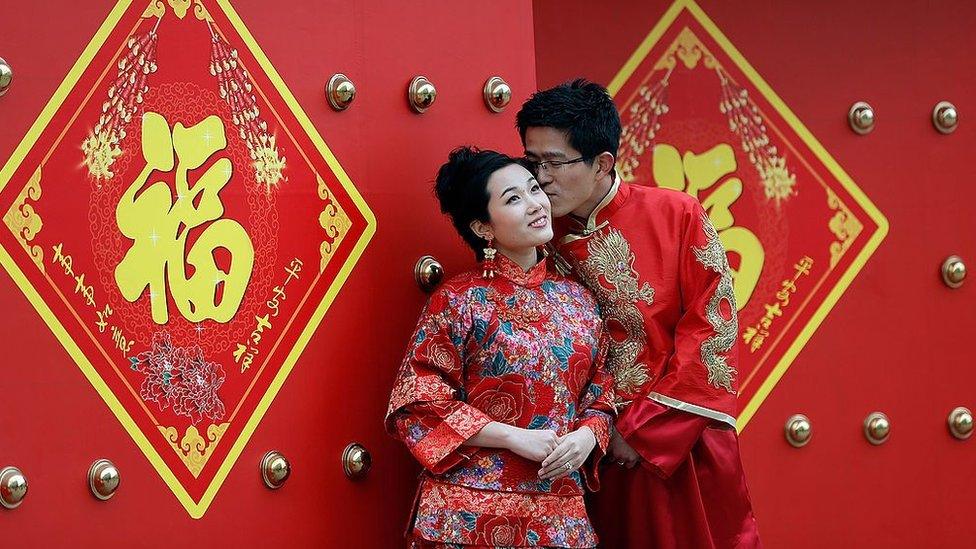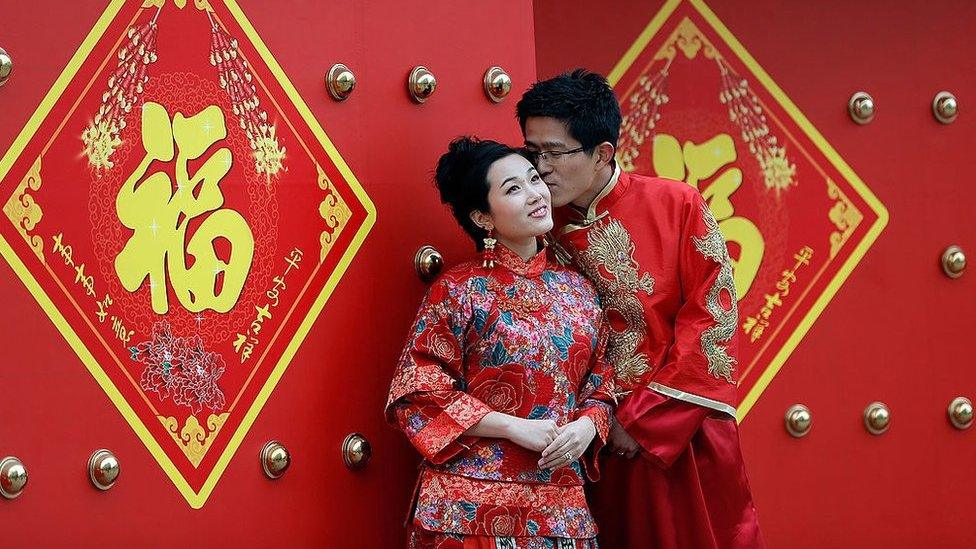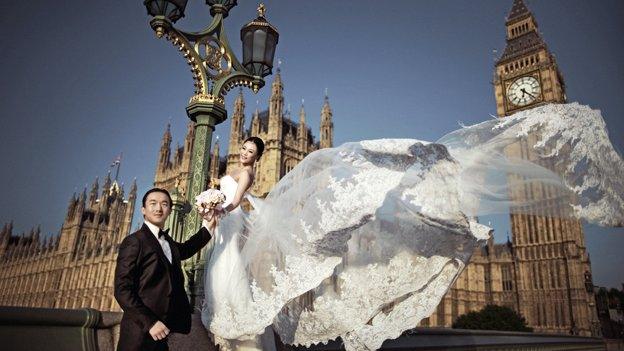Chinese county bans birthday parties in bid to be frugal
- Published

Weddings are seen as a key indicators of one's social status in Chinese culture
A county in southwest China has banned birthday parties and other celebrations, following calls from the central government to be more frugal.
It also set out new rules for weddings and funerals, including a ban on cash gifts more than 200 yuan (£22, US$31).
The rules in Funing county only apply to all communist party members, civil servants and village organisation leaders - not to most residents.
It is a traditional Chinese custom to give cash gifts at parties.
However, they have also been used as bribes for influential hosts.
This is not the first time the Communist Party has cracked down on its members. In 2015, they were banned from extravagant eating and drinking, joining golf clubs or entering private clubs, as part of an anti-corruption drive.
However, China has generally for years been calling on its citizens to hold more "simple and moderate" weddings, condemning "extravagance and wastefulness".
According to the new directive issued last week, parties celebrating occasions such as birthdays, job promotions, or housewarmings, would be banned from this month.
There are also very specific rules some have to follow.
Public servants in the county in Yunnan Province for example, will now be required to report wedding details - such as the cost and guest list - to the local government in advance.
The number of wedding banquet tables should be no more than 20, with the overall guest list capped at 200, it added.
The cost to feed each guest should not be more than 50 yuan if the banquet is held in a restaurant, and not more than 300 yuan for the whole table if held at home.
The number of cars for the wedding procession should also be kept below 10.
Weddings and funerals are seen as key indicators of one's social status in Chinese culture, and there is sometimes a societal expectation - especially for those in power like village leaders - to hold extravagant and elaborate affairs.
A typical wedding banquet can see hundreds of guests attend, and it is typically for guests to bring monetary gifts.
In smaller villages, weddings and funerals can last days and involve mass processions.
Similarly, new rules were laid out for funerals, where it is tradition in China for guests to give grieving families "condolence money".
Funerals cannot be held longer than three days, and details of the event must be submitted to the government within 10 days after it is held.

You might also be interested in:
Do China's 'one child generation' want more children?
- Published19 February 2016

- Published3 December 2018

- Published18 October 2014
